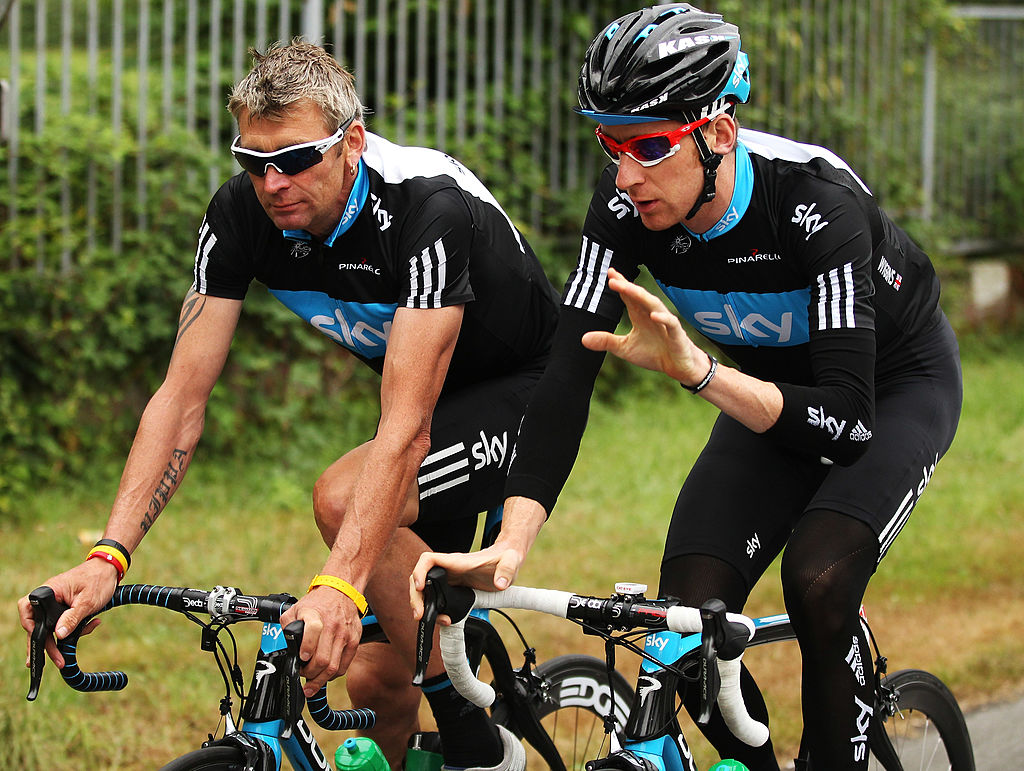Sean Yates raises serious questions over Ineos' Tour de France tactics
Says Ineos are 'uselessly expending their energy'

Former Team Sky director Sean Yates has raised questions over his former team’s Tour de France tactics, telling L’Equipe that Ineos Grenadiers have been ‘uselessly expending their energy’ at times during the race, and questioning the team’s decision to replace the late Nicolas Portal with a shared structure within their core group of directors.
Yates was part of the management when they raced under the Sky banner between 2010 and 2012 and helped guide Bradley Wiggins to Britain’s first Tour de France title. He left at the end of 2012 but was critical over the team’s approach to this year’s race, specifically after stage 13 when defending champion Egan Bernal lost over half a minute to both race leader Primoz Roglic and Tadej Pogacar. Bernal now sits third overall, 59 seconds off Roglic’s lead but on stage 13 Ineos set the pace on the penultimate climb, only for Bernal to falter.
“It’s a strange strategy,” L’Equipe reports Yates as saying.
According to Yates, his former team is used to riding with one tactic and they struggle to devise new strategies, although they did at least force Jumbo Visma into working on stage 13 by sending Pavel Sivakov up the road.
“I think they’re so used to imposing their way of racing on others that they struggle to do anything different. When you’ve won so much, it’s hard to adapt. If your team has three leaders, as should have been the case last year, for example, making the race hard to weaken your rivals is a logical tactic.
"But Ineos came to this Tour with one sole leader, who clearly isn’t at the level. They’d be better off staying in the wheels rather than uselessly expending their energy."
The bottom line, however, is that Bernal is not yet in a position to dominate the Tour as he did in the final few stages of 2019. He has looked better than at the Criterium du Dauphine a few weeks ago and even told reporters at the end of stage 13 that his numbers on the final climb were up there with some of his best. However, the defending champion has been left wanting when Roglic and Pogacar have shown aggression and Yates also questioned the team’s training programme in relation to Bernal’s lockdown time in Colombia.
Get The Leadout Newsletter
The latest race content, interviews, features, reviews and expert buying guides, direct to your inbox!
“Ineos came to the Tour thinking Bernal was the best rider in the peloton. Setting the tempo is useful when you have the best rider – the higher the pace you set, the bigger the gaps he can create in the finale. But that the moment, the best rider is Primoz Roglic. He’s flying.
“The general level has increased. With each stage, climbing records are beaten, but it’s clear Bernal hasn’t followed that trend. I ask myself about the impact that the lockdown in Colombia has had on him, and on the quality of his training. I know he did several rides close to 300km, without a solid base. Was that well-calculated? I think all that wasn’t beneficial to him. Questions have to be asked of his preparation.”
Of course, Ineos came into this year’s race without Nicolas Portal. The Frenchman tragically passed away earlier this year and the British team decided not to try and find a direct replacement during the year. Instead, Dave Brailsford has looked to spread Portal’s former duties within the existing management structure. According to Yates, while that approach might look good on paper, it doesn’t translate well to race situations, where decisions need to be made instantly.
“I don’t know if it’s enough to explain their current tactical problems but Nico embodied the success of Ineos, and with success comes confidence. His death was a shock for the riders – it affected them profoundly. He was pulling the strings for years.
"Now, there are four directors and we don’t really know who calls the shots. It’s quite a fluid situation. In the race, everything must be handled in an automatic way. Once a stage is underway, you don’t have time to hold a videoconference to decide on tactics. Before, when the boat had a hole in it Nico was there to repair it. But in cycling, as in life, nothing lasts forever.”
Daniel Benson was the Editor in Chief at Cyclingnews.com between 2008 and 2022. Based in the UK, he joined the Cyclingnews team in 2008 as the site's first UK-based Managing Editor. In that time, he reported on over a dozen editions of the Tour de France, several World Championships, the Tour Down Under, Spring Classics, and the London 2012 Olympic Games. With the help of the excellent editorial team, he ran the coverage on Cyclingnews and has interviewed leading figures in the sport including UCI Presidents and Tour de France winners.
